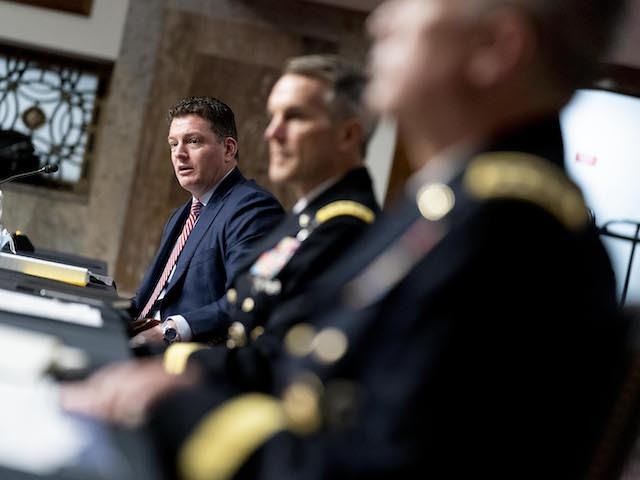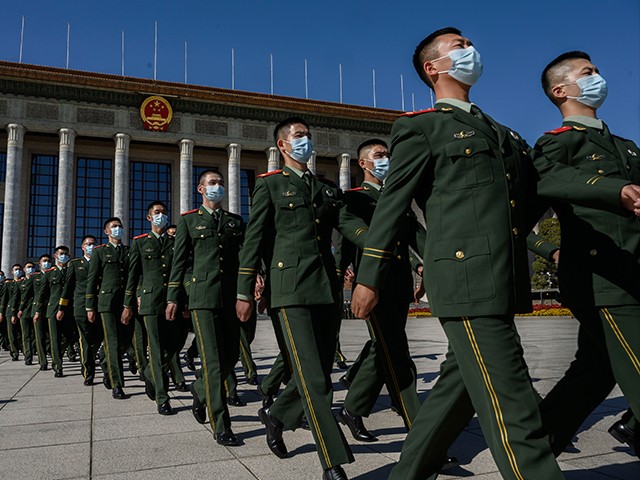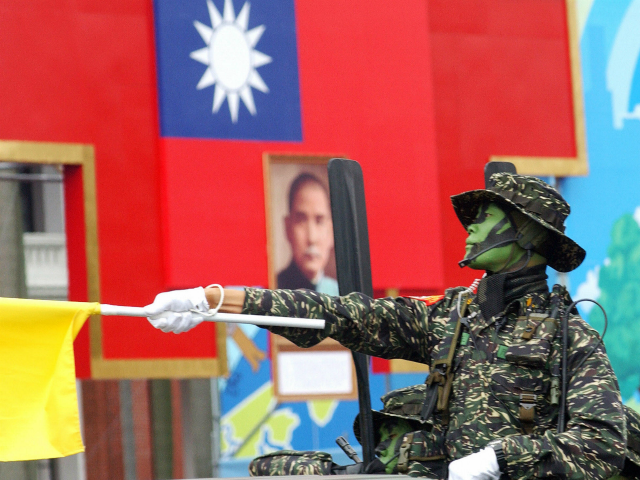The Wall Street Journal (WSJ) on Thursday quoted unnamed “officials” who said a contingent of about two dozen U.S. special operations and support troops have been deployed to Taiwan for at least a year to train their Taiwanese counterparts. The report drew a terse response from China, which objects strenuously to any number of American soldiers being stationed in Taiwan.
According to the WSJ, the clandestine training has included U.S. Marines teaching the Taiwanese small-boat combat tactics.
The officials quoted in the report described the training mission as “a small but symbolic effort by the U.S. to increase Taipei’s confidence in building its defenses against potential Chinese aggression,” with an eye toward teaching the Taiwanese how to take fullest advantage of simple and easily protected equipment that might not be targeted for immediate destruction in the event of a Chinese invasion.
The WSJ noted that Asian media has occasionally printed unconfirmed reports of U.S. Marines operating in Taiwan, and Assistant Secretary of Defense for Special Operations Christopher Maier told the Senate Armed Services Committee that a special operations training force should be deployed to Taiwan, without mentioning that one might already be there.

From left, Acting Assistant Secretary Of Defense For Special Operations And Low-Intensity Conflict Christopher Maier, accompanied by Special Operations Command Gen. Richard Clarke, U.S. Cyber Command Commander, National Security Agency Director and Central Security Service Chief, Gen. Paul Nakasone, speak at a hearing to examine United States Special Operations Command and United States Cyber Command in a review of the Defense Authorization Request for the fiscal year 2022 and the Future Years Defense Program, on Capitol Hill on March 25, 2021, in Washington, DC. (Andrew Harnik-Pool/Getty Images)
The Pentagon did not confirm or deny the WSJ report, but a spokesman did point out that China has recently “stepped up efforts to intimidate and pressure Taiwan,” implying Beijing has no right to complain about the U.S. helping Taipei shore up its defenses.
Republican Sen. Thom Tillis (R-NC) of the Senate Armed Services Committee and Democrat Rep. Ami Bera (D-CA), who sits on the House Foreign Affairs Committee, were attending a defense forum sponsored by Politico when the Taiwan story broke. Both said they were unaware of the special operations training mission described by the WSJ, although both supported the idea.
“Actually, I would be happier if that number was in the hundreds,” Tillis said.
The Chinese Foreign Ministry’s immediate response to the report was somewhat muted, reminding the U.S. of relevant regional agreements and warning that “China will take all necessary steps to protect its sovereignty and territorial integrity.”

Chinese soldiers from the People’s Liberation Army wear protective masks as they march after a ceremony marking the 70th anniversary of China’s entry into the Korean War, on October 23, 2020, at the Great Hall of the People in Beijing, China. (Kevin Frayer/Getty Images)
Bonnie Glaser, director of the Asia program at the German Marshall fund, told Reuters on Thursday that Beijing was probably already aware of the reported training operation, but disclosing it to the general public could “compel the Chinese to react, and they will likely do so by stepping up pressure on Taiwan.”
China constantly grumbles about large U.S. arms sales to Taiwan, but it usually responds with exaggerated vehemence to any deployment of American troops on the island, no matter how small. For example, Beijing was enraged by suggestions in 2019 that the American Institute in Taiwan – the unofficial U.S. embassy – could be protected by U.S. Marines.

COMMENTS
Please let us know if you're having issues with commenting.